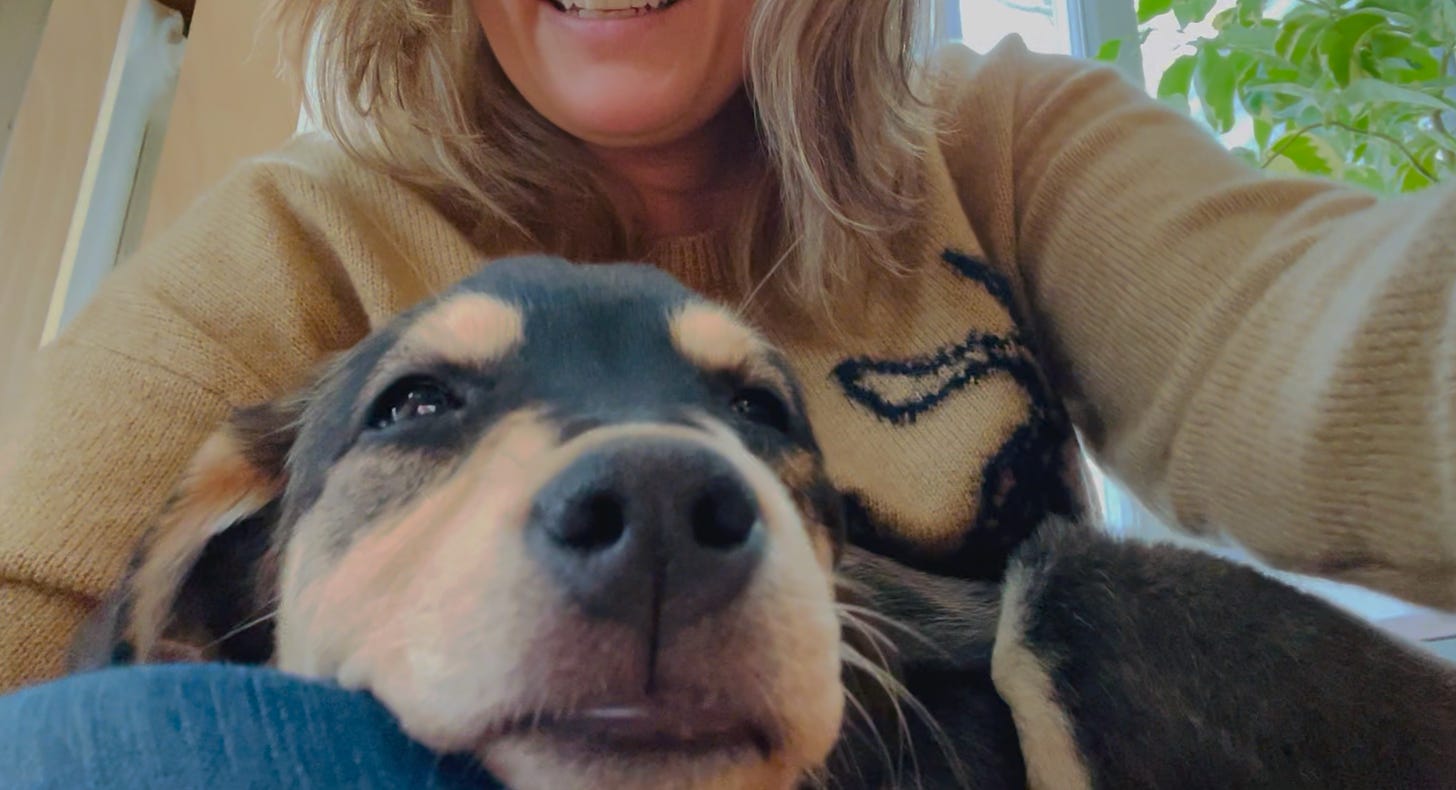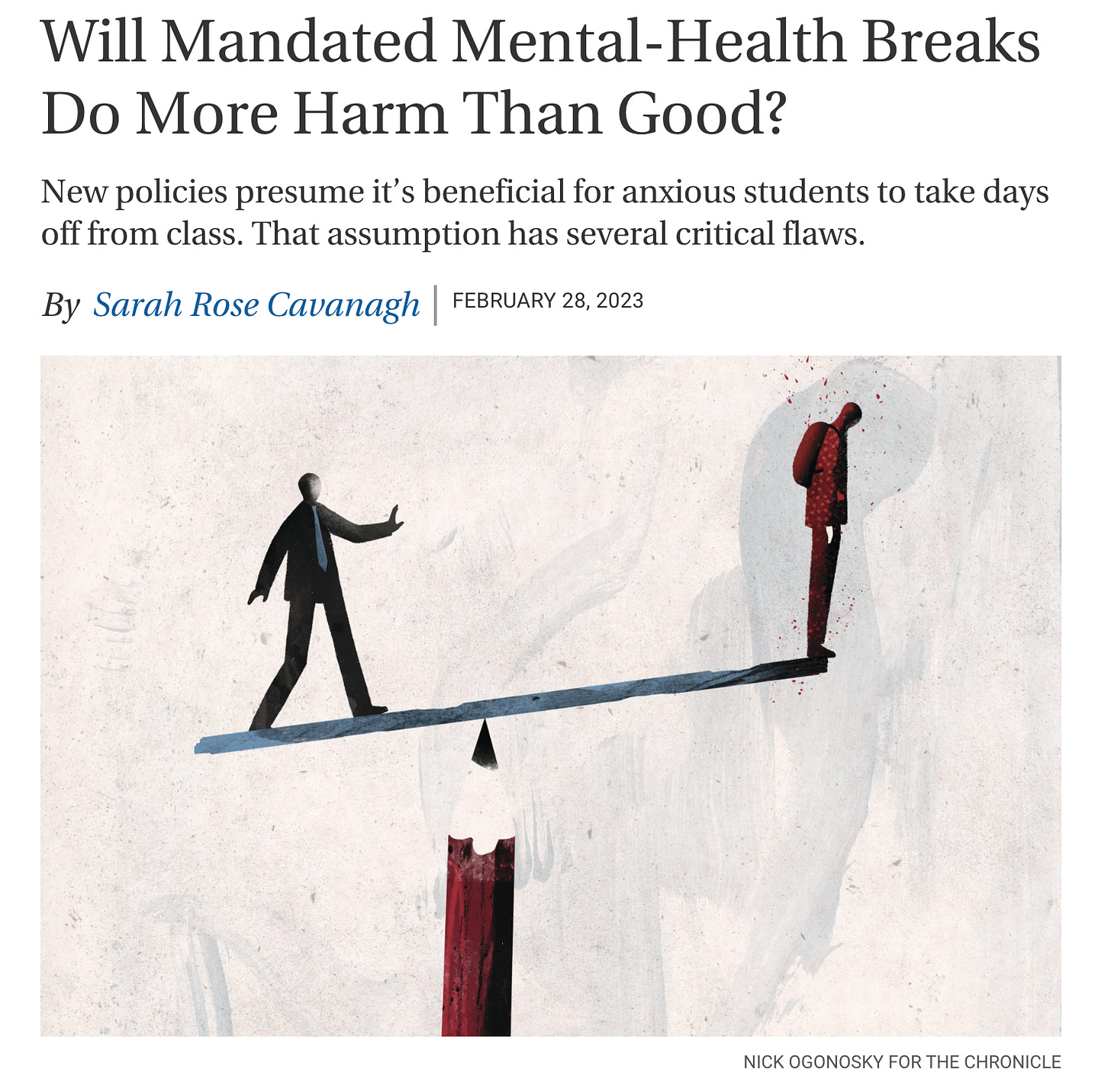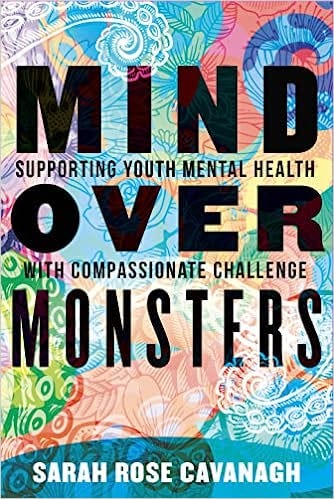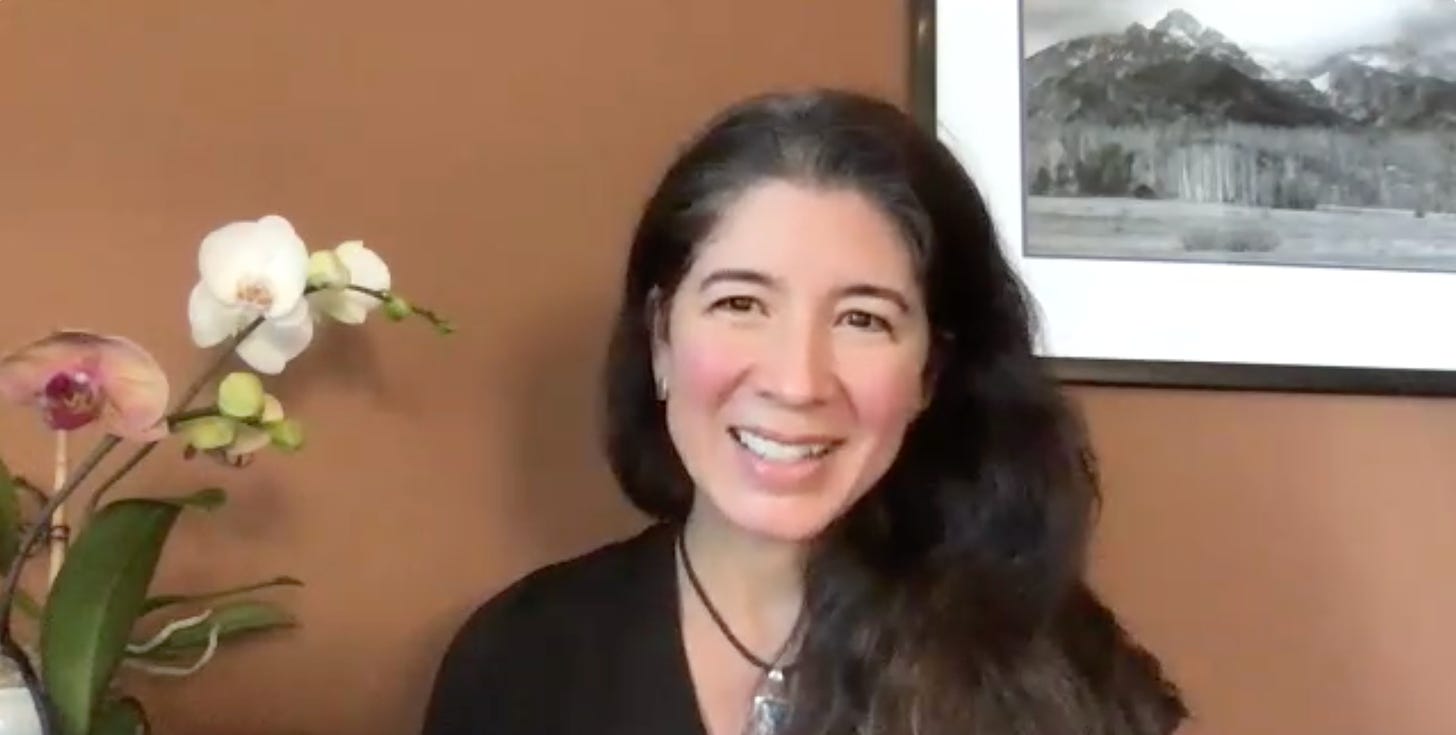Welcome to Week Seventeen of Once More, With Feeling.

The theme of my February seems to have been making (perhaps-ill-advised) decisions that add entirely unnecessary demands to an already-over-full life. I suppose as March roars in, I have only myself to blame for summoning a lion of a month.
BE THE SPARK - Thoughts on Teaching and Learning
The first of these decisions was to pause everything else and write an essay for The Chronicle of Higher Education that I fear might be read as insensitive or just plain wrong by people whose opinions I greatly value. While it relates to the topic of my new book and thus might be read as purely promotional, it really was one of those organic essays that burst out of me because I felt very passionately about the topic.
The provocation of this passion was another article from The Chronicle, one by Julian Roberts-Grmela titled Students Say Mental-Health Breaks From Class Help Them Succeed. Here’s How Colleges are Responding. Essentially, students on many campuses are advocating that their institutions not just mandate that instructors make allowance for a certain number of breaks per student from class to tend to their mental health but also require these same instructors to provide accommodations to the work of the course. At Northeastern University, for example, the students are advocating for policies that require instructors to provide class notes and deadline extensions when students use a one of these mental-health break days.
In the essay, I argue that making these mental-health breaks mandatory in every course and associated with accommodations could do more harm than good—for both faculty and students. Rather than re-writing the essay in this newsletter, I invite you to read it here.
My worry is that it will read as anti-rest, or pro-toxic rigor, or antagonistic to student welfare. I believe rest is resistance. I am a sleep evangelist. I have argued that and sincerely believe the most powerful current move higher ed could make would be to give faculty more time and autonomy, and I’ve spent the last eight years of my life advocating for student-centered teaching that prioritizes the emotional well-being of students. I am a huge proponent of setting boundaries on work demands—I was my high school’s valedictorian but got a letter in the mail a few weeks before school got out that if I missed another day of school, I wouldn’t be able to graduate. I took a lot of breaks!
But on residential campuses and in the lives of the many late adolescents and college students in my life, I see so many markers of problems with withdrawal and avoidance. This is not surprising for a cohort whose late high school experiences were largely spent in social isolation. I worry quite a lot that for students on residential campuses, instead of rejuvenation, a mental-health break will be spent alone in their dorms by the cold light of their phones. I also believe (and even better, the idea is supported by decades of psychological evidence) that signaling to young people that they should interpret negative emotions as reasons for retreat could be detrimental to mental health. I also am deeply, deeply wary of the creep of administrative policies into instructor decision-making about their own courses.
I know that my perspective is just one on a complicated matter, though. Foremost in my mind is the fact that my concerns are admittedly pretty focused on traditionally-aged residential college students—a narrow perspective I usually try to avoid (these students are now in the minority of all students participating in higher ed).
A good essay opens a conversation—much as Roberts-Grmela’s did. The title of my essay is in the form of a question for a reason.
Let’s keep talking.
OUR MONSTERS, OURSELVES - Uncertainty, Challenges, Mental Health
While I’m not fancy enough for a book tour proper, I will be hitting a few spots on both the east and west coasts to promote Mind Over Monsters and sign some books —mark your calendars for May 4th at Town Hall Seattle, probably June 1st at Simmons University in Boston (this book talk event will also be freely available to all on Zoom), and perhaps somewhere June 14-16th in Washington D.C.
Keep those pre-orders coming! We’re reportedly up to 75 books of a goal of 100 books (I read somewhere that was a critical number, though who knows if it is true…).
A heartfelt thank you to all who have taken a chance on the book with a pre-order.
EMOTION & MOTIVATION - Feeling and Striving
Lani Shiota and I are at the stage of our new textbook edition of Emotion and Motivation where we are scrambling to finish the ancillary resources. One particularly fun task has been recording short intro videos for each chapter where we introduce the lens or main points of the chapter, relate the material to our everyday lives, or interview relevant experts. You can preview some screenshots below.


Anyone teaching courses in Emotion, Motivation, or the combination thereof, the book (and e-book) will be available in the fall.
HIVEMIND - On Social Neuroscience & Our Synchronous Selves
A new report from the Centers for Disease Control about the dismaying state of teen mental health has kicked the hornet’s nest of speculation that it is all about the smartphones.

In my book HIVEMIND, I evaluated the research evidence to that date and concluded that there are patterns of use associated with better and worse mental health and that we should probably follow a principle of “enhance, don’t eclipse” —use these tools to enhance or augment our existing social connections, but avoid them using them in ways that eclipse social connections, especially those that are face-to-face. I’m all for regulating big tech and also all for parents regulating their kids’ social tech usage in the same way you might modulate tv time, sugar, or other things that are fun-but-bad-in-large-quantities.
But no one wants to hear moderate views on this topic, it seems. Everyone seemed to assume that a perspective that studiously avoids moral panic and faces the reality that smartphones aren’t going back into Pandora’s box means that I advocate we issue babies smartphones on their rides home from the hospital.
Oh well. :)
INCIDENTALLY - Meet Vixen, the Valentine Pup
Speaking of babies (and the tension between motivation and rest), somehow on Valentine’s Day I found myself texting my spouse and child puppy pictures from Petfinder, making an inquiry on one little lady that snatched my heart with just two pics, and then “meeting” her on Facetime after a long commute home. While we’re been discussing adopting a second dog since the beginning of the pandemic, it still felt sudden and honestly more like something that was happening to me than something that I decided.
Meet Vixen the Valentine Pup. She’s a mix of unknown breeds (but definitely some lab) from Alabama, where she was abandoned with her siblings but not her mum. She’s adapting remarkably well to the cold weather of New England.
Hope your own Marches are less lion and more lamb, my friends.





